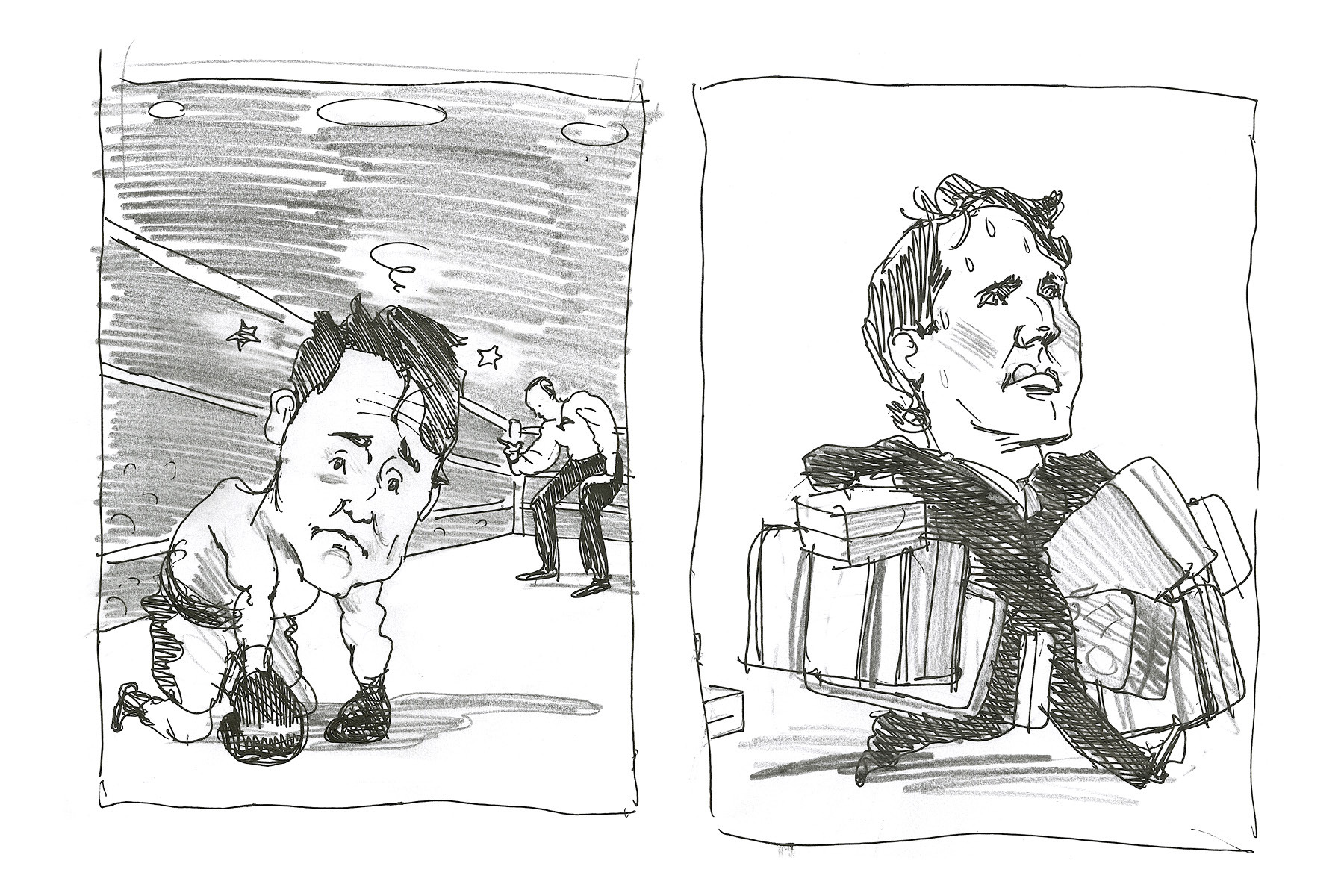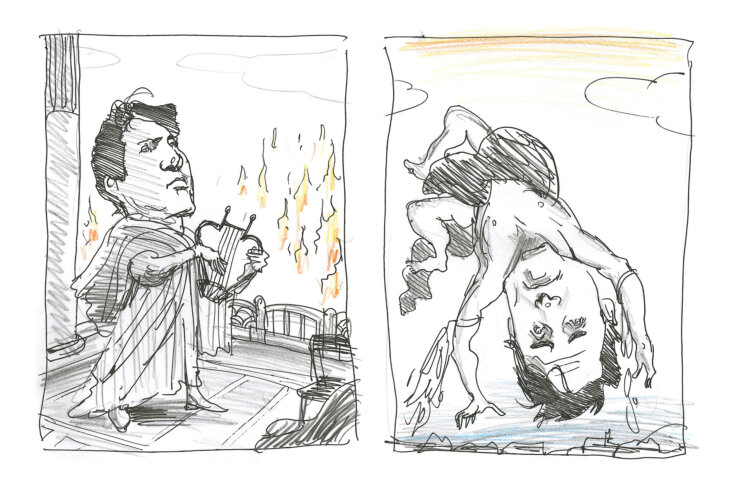“The first step in selling is stopping the eye.” That’s a line from a Time magazine description of George Lois, maybe the most provocative art director of the modern era.
Decades before Photoshop made such tricks easier, Lois had an uncanny ability to compress complex ideas into simple and striking images. His work for Esquire is the stuff of legend. He drowned Andy Warhol in a can of soup and showed Richard Nixon being primped and powdered by a makeup artist. His masterwork, for the April 1968 issue, gave us the ex–heavyweight champion Muhammad Ali bristling with arrows in a do-over of the third-century martyrdom of St. Sebastian. A generation of designers emulated Lois’s risk taking. In fact, he is largely the reason the history of print magazines is a history of unforgettable covers—Life’s Vietcong prisoner with his eyes and mouth taped shut, Rolling Stone’s naked John Lennon straddling Yoko Ono, Vanity Fair’s pregnant (and also nude) Demi Moore. These visual markers have stuck around longer than the stories they were associated with.
This year at The Walrus, we decided to stop the eye with more intention. Print may have suffered steep declines in sales but a well-designed cover remains the best way to slice through the digital noise. For recent issues, we reached out to illustrators Myriam Wares (who arted our December 2023 retirement cover) and Pete Ryan (May 2024, toxic workplaces) to create images that were gorgeous and accessible. No surprise that both features ended up among our biggest stories of the year. When we cast about for who to trust with our Justin Trudeau cover story, there was really only one choice: Barry Blitt. Canadian born, Blitt moved to the United States in the 1990s. His cartoons and caricatures have become mainstays of many magazines, including The New Yorker. Among his gifts, Blitt has a cunning way of satirizing politicians. Like a latter-day Lois, he skewers his targets while leaving us smiling.

Blitt’s outtakes, printed here, give a sense of the virtuosic scale of his talent. Justin Ling’s story—featuring a diminished leader, headed for a possible electoral defeat, preparing for a fight—was the perfect subject for his style. Any one of the mock-ups might have worked, as all are accurate to the prime minister’s problems. The question became: What did we want to say? Is Trudeau delusional, arrogant, or disconnected? Is he trying his best (too little, too late), or is his lack of awareness his downfall? We decided to go with embattled firefighter—a politician confidently, if bumblingly, trying to solve a crisis on the cusp of engulfing him. An old story given new form.




